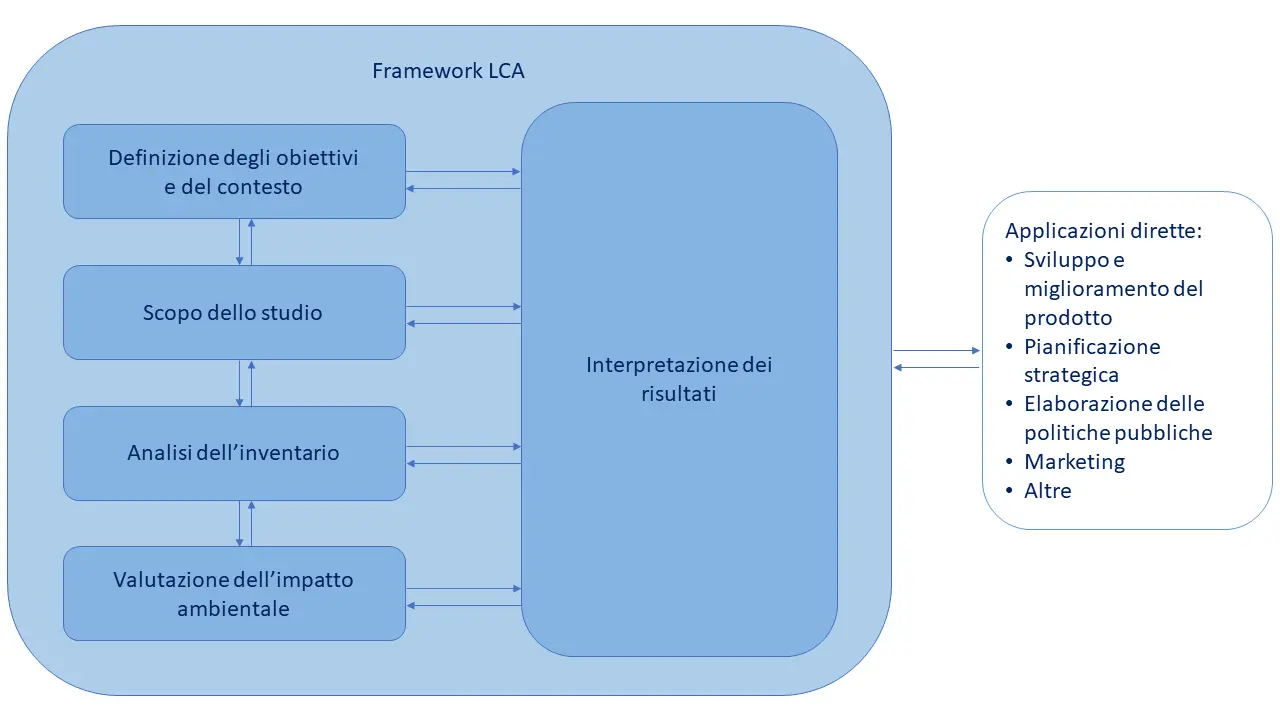Green transition
LCA to analyze environmental impacts
The 17 goals of the 2030 Agenda (UN, 2015) and the European Green Deal priority policy are pushing countries to adopt political, economic and social strategies aimed at global sustainability.
In particular, the focus is on environmental problems and climate change, which severely threaten biodiversity conservation both in Europe and the rest of the world.
With this in mind, the EU is investing so that all member states can take actions that can positively impact the environment.
In this context, companies can play a key role and act as drivers in implementing processes that can be effectively environmentally sustainable.
Aproduct’s or a process’ sustainability can be demonstrated through a measurement tool: the Life Cycle Assesment (LCA) is a standardized methodology used to assess, quantify and rank the potential environmental impacts associated with a product, process or system by considering its entire life cycle, from raw material extraction to end of life.
LCA is thus a method that can steer a process of any kind toward a circular economy system, with the aim of minimizing the amount of waste and maximizing recycling/reuse.
The LCA study in accordance with the ISO 14040 series of standards involves four steps:
- definition of goals and context;
- inventory analysis (Life Cycle Inventory, LCI);
- Life Cycle Impact Assesment (LCIA);
- interpretation of results.

Overview of the phases of an LCA study (Source: ILCD Handbook International Reference Life Cycle Data System, European Commission Joint Research Centre Institute for Environment and Sustainability).


